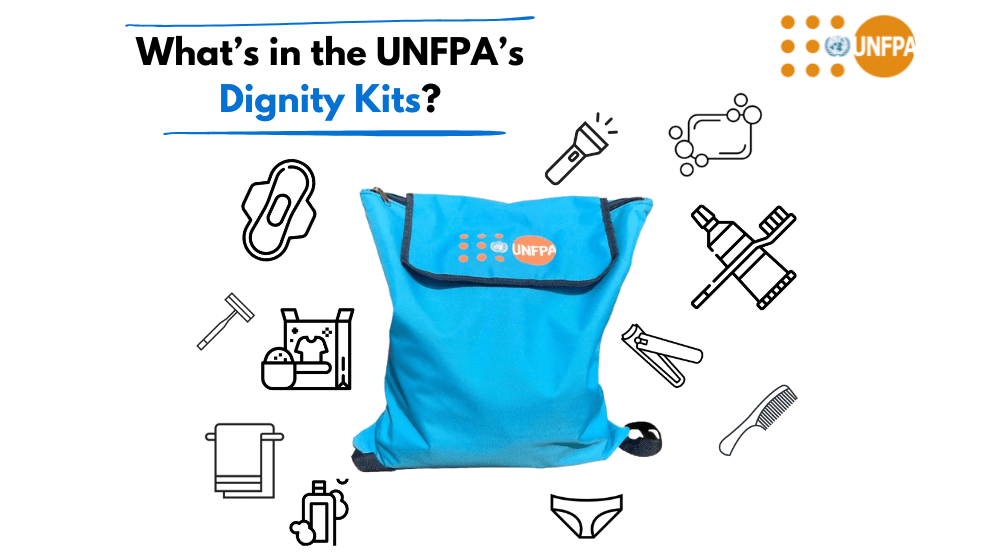Menstrual Health: A Critical Yet Overlooked Component
Menstrual health has historically been an overlooked component of humanitarian response during conflicts and other crises, as it is often not considered critical to survival. However, the lack of access to menstrual supplies or clean water and washing facilities can lead to painful physical conditions such as reproductive and urinary infections and drive feelings of stress and shame. It can also restrict women and girls from leaving their shelters, preventing them from accessing humanitarian relief.
In times of extreme hardship, such as post-disaster scenarios or periods of conflict, UNFPA provides essential supplies to uphold the well-being and respect of women and girls. These crucial items are typically packaged within what are known as dignity kits, distributed in affected areas. Generally, these kits consist of menstrual pads, soap for bathing, multiple sets of underwear, laundry detergent, sanitary napkins, a flashlight, toothpaste, a toothbrush, and a comb. These items are thoughtfully assembled in a backpack or portable bucket for ease of transportation, tailored to address the specific requirements of women and girls.
Researchers have found that UNFPA-provided dignity kits fill critical sanitation and hygiene gaps in catastrophic settings, improving women’s and girls’ mobility and ability to access other essential services.
Partnership for preserving the dignity of women and girls
UNFPA has traditionally partnered with stakeholders on the grounds for the distribution of dignity kits. Since the beginning of the year, 10,000 kits have been procured and 8,000 have been used by women and girls aged 15-49 in hard-to-reach communities of Kerman, and Khorasan Razavi. A good portion of these kits were distributed among communities in Sistan and Baluchistan, affected by floods in March 2024.


